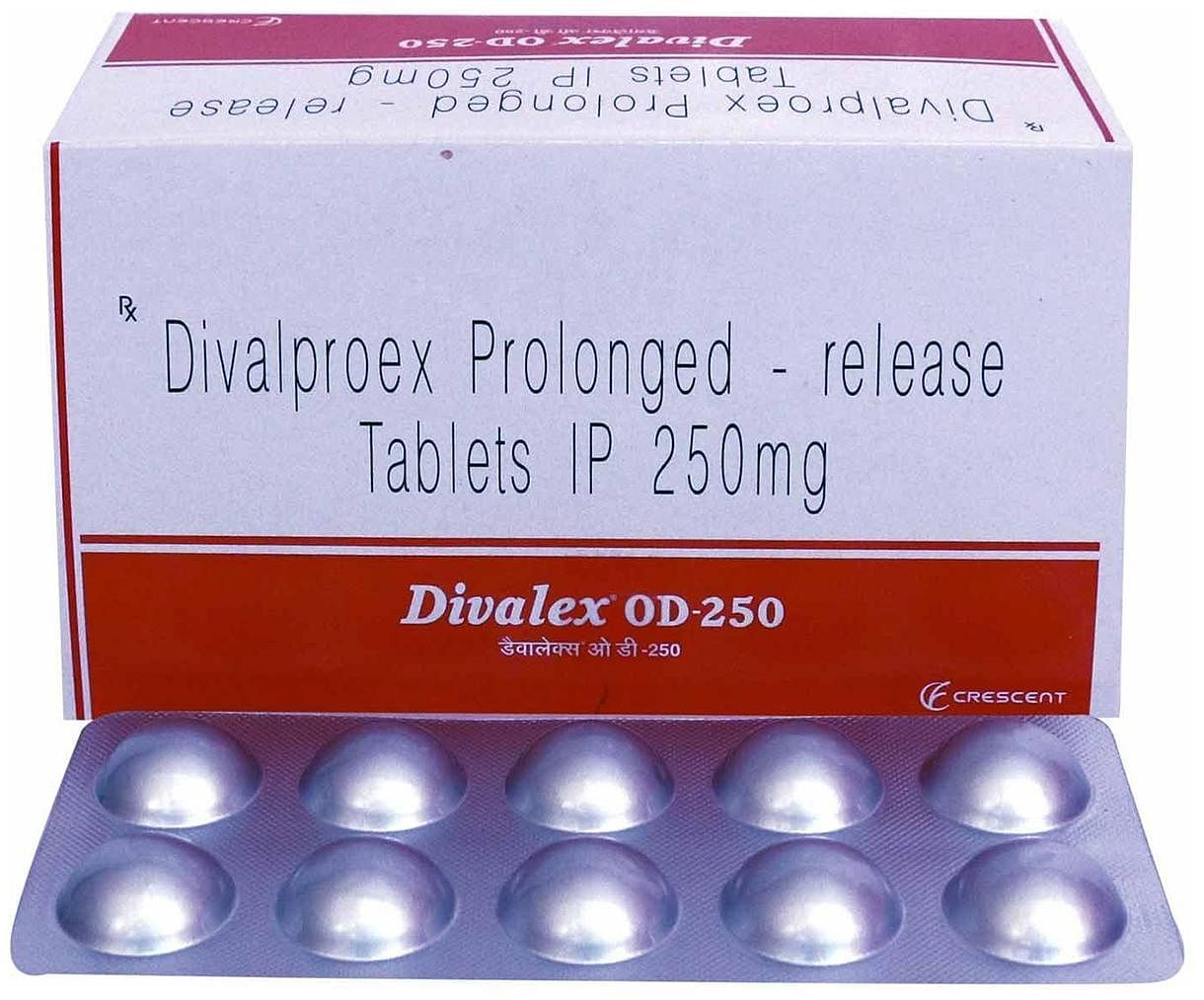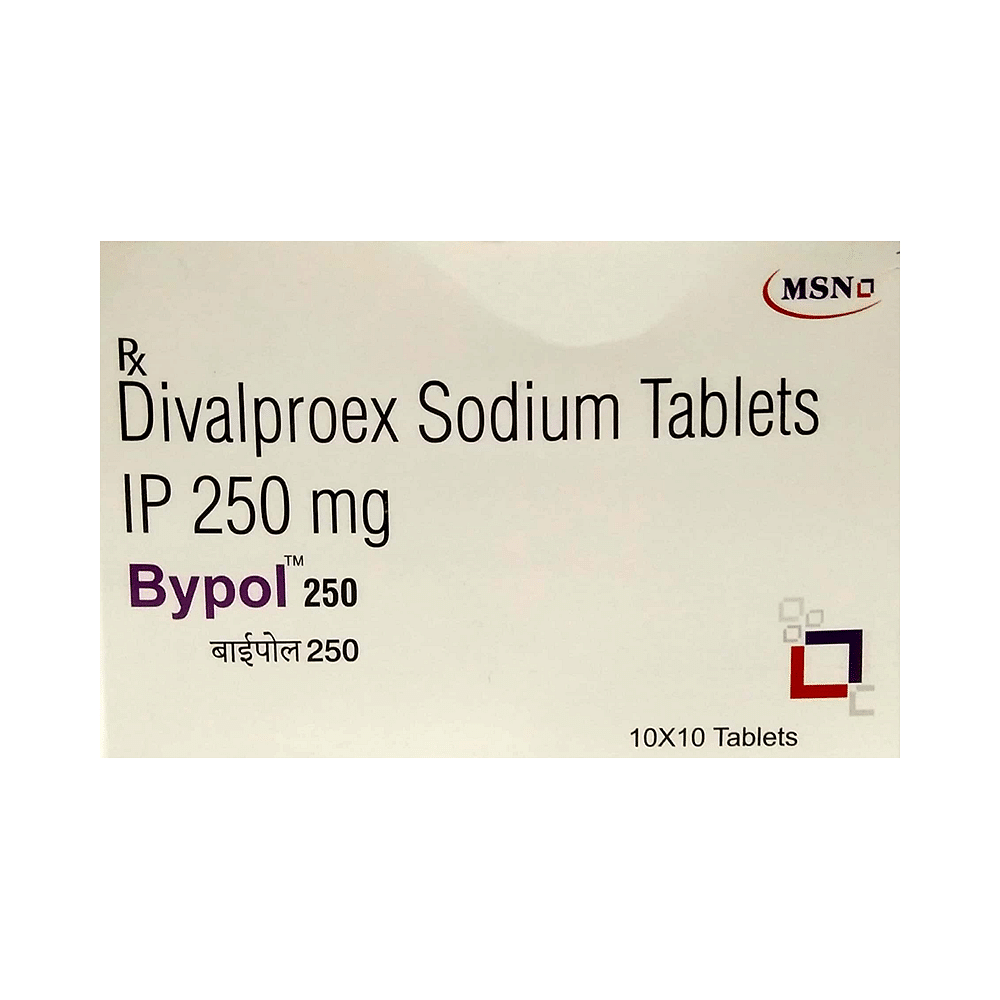
Dipro 250mg Tablet
Manufacturer
D D Pharmaceuticals
Salt Composition
Divalproex (250mg)
Key Information
Short Description
Dipro 250mg Tablet is a medicine used to treat epilepsy, prevent and control seizures (fits), and prevent migraines. It may also be used to treat bipolar disorder.
Dosage Form
Tablet
Introduction
Dipro 250mg Tablet may be used alone or in combination with other medicines. The dose and how often you need to take it will be decided by your doctor so that you get the right amount to control your symptoms. You can take this medicine with or without food but take it at the same time each day to get the most benefit. It usually takes a couple of weeks to work. It is important to take this medicine regularly and for as long as you are advised even if you feel well. Missing doses may trigger seizures and if you stop your condition may get worse. It should never be stopped suddenly.
Directions for Use
Take this medicine in the dose and duration as advised by your doctor. Swallow it as a whole. Do not chew, crush or break it. Dipro 250mg Tablet may be taken with or without food but it is better to take it at a fixed time.
Safety Information
Side Effects
Headache Blurred vision Nausea Vomiting Dizziness Tiredness Unsteadiness Bruising Decreased body temperature
Alcohol Warning
Dipro 250mg Tablet may cause excessive drowsiness with alcohol.
Breastfeeding Warning
Dipro 250mg Tablet is safe to use during breastfeeding. Human studies suggest that the drug does not pass into the breastmilk in a significant amount and is not harmful to the baby.
Pregnancy Warning
Dipro 250mg Tablet is unsafe to use during pregnancy as there is definite evidence of risk to the developing baby. However, the doctor may rarely prescribe it in some life-threatening situations if the benefits are more than the potential risks. Please consult your doctor.
Interacting Medicines
Alprazolam Chlordiazepoxide Clobazam Clonazepam
How it works
Dipro 250mg Tablet is an antiepileptic medication. It controls seizures or fits by decreasing the abnormal and excessive activity of the nerve cells in the brain.
Quick Tips
Take your medication regularly as directed by your doctor as missing doses can trigger seizures. It can be taken with or without food but better to take with food to avoid stomach upset. Do not change the brand of your medicine and make sure that you have sufficient amount of medicine present with you. Some healthy tips to prevent seizures: Practice yoga every day, Get enough sleep at nighttime, Limit the use of screen time such as mobile/laptop, Take your medication on time, Monitor your weight during treatment with this medicine as it can cause weight gain.
Related Medicines

Divalex OD 250 Tablet

Valdip 250mg Tablet

Bisval OD 250mg Tablet

Bypol 250 Tablet

Dirox 250mg Tablet

Kayval 250mg Tablet

Devine OD 250mg Tablet

Cylenc DS 250mg Tablet

Divalop 250mg Tablet

Diprox 250mg Tablet
Frequently asked questions
What happens if I stop taking Dipro 250mg Tablet?
You should not discontinue taking Dipro 250mg Tablet without consulting your doctor. Dosage reduction should be gradual, and can only be stopped under medical supervision. Sudden discontinuation may lead to relapse of symptoms or increased irritability, anxiety, dizziness, and tremors.
Is Dipro 250mg Tablet a mood stabilizer?
Yes, Dipro 250mg Tablet can sometimes be used as a mood stabilizer. It is given to patients experiencing rapid shifts in their moods. It works by calming the hyperactivity of the brain during mood changes.
Can Dipro 250mg Tablet cause weight gain?
Yes, Dipro 250mg Tablet may cause weight gain. This is due to increased hunger. Keep a close eye on your diet and exercise regularly to prevent any weight gain. Consult your doctor if you are concerned about weight gain.
Does Dipro 250mg Tablet make me sleepy?
Yes, Dipro 250mg Tablet may cause drowsiness. Avoid driving or tasks requiring mental focus until you understand the medicine's effects on you.
Does Dipro 250mg Tablet cause hair loss?
Yes, Dipro 250mg Tablet can lead to hair loss. However, it is usually temporary and dose-dependent. If the hair loss persists or causes concern, consult your doctor.
Can Dipro 250mg Tablet damage my liver?
Yes, Dipro 250mg Tablet can cause liver damage. This risk is higher during the initial 6 months of treatment. Symptoms may include nausea or vomiting, loss of appetite, stomach pain, dark urine, facial swelling, yellowing of the skin, or white eyes. Regular liver function tests before and during the first 6 months are crucial to monitor for potential complications.
Can I drink alcohol while taking Dipro 250mg Tablet?
Avoid alcohol consumption while on treatment with Dipro 250mg Tablet. Combining these substances may intensify drowsiness, dizziness, or lightheadedness.
What laboratory tests are recommended before starting Dipro 250mg Tablet?
Your doctor might order blood tests before starting treatment with Dipro 250mg Tablet. These tests could include a complete blood count (CBC), platelet count, bleeding time, and coagulation tests to assess your risk of spontaneous bruising or bleeding. Additionally, liver function tests should be conducted before the start of therapy, with periodic monitoring during the first 6 months, especially in those at higher risk or with pre-existing liver disease.
What should I do if I experience abdominal pain, nausea, and anorexia?
Sudden onset of severe abdominal pain accompanied by nausea and vomiting may indicate pancreatitis. Seek immediate medical attention in such situations. The doctor may perform a serum amylase test to confirm the diagnosis. If this test shows positive results for pancreatitis, medication should be stopped immediately.
How do I check for an overdose of Dipro 250mg Tablet?
Overdose symptoms may include headaches, blurred vision due to smaller pupils, impaired reflexes, confusion, tiredness. You might experience weakness or a floppy sensation in muscles, fits (seizures), loss of consciousness, behavioral changes, and difficulty breathing with rapid breaths, shortness of breath, or chest pain. Call emergency medical services immediately in case of an overdose.


